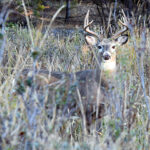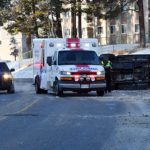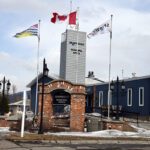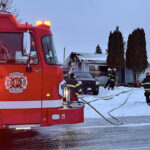Home »

Kaminsky novel forces reader to wonder about justice
Book Review
By Derryll White
Kaminsky, Stuart M. (1995). Blood & Rubles
“I have a right to know. This is a democracy now.”
“This is a lunatic asylum now,” the young policeman in the passenger seat said.
 Some readers will remember Boris Yeltsin, a member of the Communist Party from 1961 to 1990 and then President of Russia from 1991 to 1999 as a political independent. He became the first popularly-elected head of state in Russian history. He was instrumental in the dissolution of the Soviet Union and the formation of the Russian Federation. He transformed Russia into a capitalist market economy. Within this changeover a small number of oligarchs arose, eventually spawning Vladimir Putin.
Some readers will remember Boris Yeltsin, a member of the Communist Party from 1961 to 1990 and then President of Russia from 1991 to 1999 as a political independent. He became the first popularly-elected head of state in Russian history. He was instrumental in the dissolution of the Soviet Union and the formation of the Russian Federation. He transformed Russia into a capitalist market economy. Within this changeover a small number of oligarchs arose, eventually spawning Vladimir Putin.
The author looks at the ensuing chaos, weaving four separate stories together in this novel. There is a treasure house of Czarist art and artifacts, a murderous threesome of young pre-teen children, a gang of nuclear material mafia thieves, and a kidnapping of a wealthy businessman. Kaminsky manages to capture the roots of both the political and economic turmoil of Russia in these stories.
Chief Inspector Porfiry Rostnikov, “the Washtub” of the Moscow police, lifts heavy weights to compensate for his severe war injury. His hobby is plumbing which he practices as a meditation. His ragtag collection of Deputy Inspectors all have their own deficiencies and quirks. Together, however, they constitute a strong team pursuing justice in a Russia falling apart. Always in the background is Maxim Gorky’s ‘The Mother,’ a portrayal of a woman who does hard manual labour in a Russian factory. Struggling with poverty and hunger she exclaims “Where is justice?”
Kaminsky’s novel forces the reader to jump more than 25 years ahead and wonder just what Vladimir Putin is really about. Where is the justice for the Russian people, the Ukrainian people, and the world?
********
Excerpts from the novel:
 RUSSIA POST-COMMUNIST – But as the four men seated behind the table all knew but would admit to few, there was a kind of free-floating law in Russia – partly the remnants of Communism, partly an attempt to establish the semblance of a democratic process, and partly the whim of whoever was willing to act as if he knew what to do. The risk of taking this step forward was that it might well destroy one in the future. The political advantages of the move, on the other hand, were potentially great.
RUSSIA POST-COMMUNIST – But as the four men seated behind the table all knew but would admit to few, there was a kind of free-floating law in Russia – partly the remnants of Communism, partly an attempt to establish the semblance of a democratic process, and partly the whim of whoever was willing to act as if he knew what to do. The risk of taking this step forward was that it might well destroy one in the future. The political advantages of the move, on the other hand, were potentially great.
RUSSIANS – “It is my heritage,” said Rostnikov, limping toward the door beyond which the armed soldier stood. “Over eight hundred years of trying to outwit authorities who can do what they want to you makes a people suspicious of authority and turns many of them into good and devious actors.”
CAPITALISM – “It has been like that for almost six hundred years,” said Rostnikov, “When the first little huts went up to form a village where the Kremlin now stands, the Russian people began to develop a society of distrust, corruption and subservience. Then came the czars, then the Communists, and now the frightened confusion until a new authority is firmly in command. Russians are not built for capitalism. It has turned them into victims, cowards, and criminals.”
 – Derryll White once wrote books but now chooses to read and write about them. When not reading he writes history for the web at www.basininstitute.org.
– Derryll White once wrote books but now chooses to read and write about them. When not reading he writes history for the web at www.basininstitute.org.







